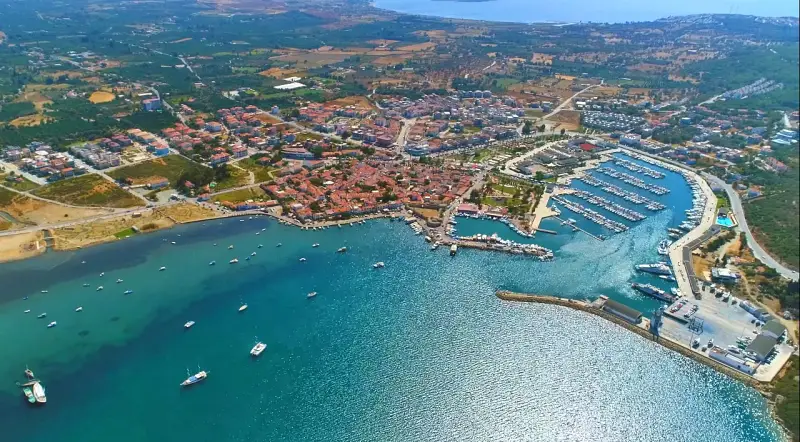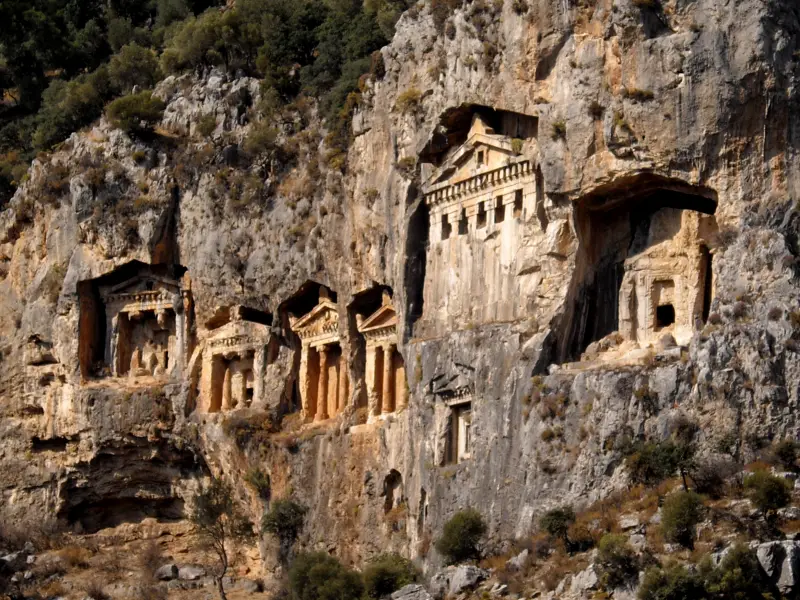Welcome to our latest blog post, where we delve into the enchanting world of traditional Turkish superstitions that have captivated hearts and minds for centuries. Turkey, a country rich in history and culture, offers a unique blend of rituals and customs that are deeply intertwined with the daily lives of its people. In this exploration, we focus on three fascinating traditions: “touch the wood” “Lead Casting” and “Reading Turkish Coffee” Each of these practices not only reflects the rich tapestry of Turkish Superstitions but also offers a window into the mystical and the everyday beliefs that shape the lives of those who partake in them.
“Touch the wood” a phrase synonymous with invoking luck and warding off evil, is deeply rooted in Turkish superstitions and the broader cultural practice of protecting oneself from the envious eyes of others. This simple act is a testament to the power of tradition and the collective belief in the unseen forces that influence our lives.
Moving on to a more mystical tradition, “Lead Casting” or “kurşun dökme” is a centuries-old practice believed to heal and protect individuals from the negative energies of the evil eye. This ritual, steeped in symbolism and the ancient art of metallurgy, reveals the complex relationship between Turkish people and the spiritual realm.
Lastly, we explore the art of “Reading Turkish Coffee,” a practice that combines the love for this rich beverage with the desire to glimpse into the future. This tradition goes beyond mere fortune-telling; it is a social ritual that fosters community, conversation, and a deeper connection among friends and family over a cup of finely brewed coffee.
Join us as we embark on this intriguing journey through the heart of Turkish cultural traditions. Whether you’re a lover of history, a fan of mystical practices, or simply curious about the ways in which traditions can shape and enrich a culture, this blog post is for you. Let’s uncover the magic and mystery of “touch the wood,” “Lead Casting,” and “Reading Turkish Coffee” together, and see what insights and wonders they hold.
The Origin of Touch The Wood as Superstitions
The phrase “knock on wood”—also known as “touch wood” in some countries—stems from Turkish superstition that is believed to bring good luck or ward off bad luck. While the exact origin of this practice is difficult to pinpoint due to its widespread use across various cultures and time periods, it is deeply rooted in ancient beliefs and customs related to trees, spirits, and the divine.
Ancient Civilizations and Sacred Trees
Many ancient civilizations held trees in high regard, viewing them as sacred or inhabited by gods, spirits, or other supernatural entities. The Celts, for instance, believed that spirits and gods resided in trees, particularly the oak, which was considered sacred. Knocking on or touching wood was a way to invoke the protection of these spirits or to show gratitude for good fortune, in hopes of keeping it.
Medieval Christian Practices
In Christian tradition, the association with wood could be linked to the cross on which Jesus was crucified, considered the ultimate symbol of good luck and protection against evil. Touching wood may have been a way for people to connect with the divine protection and blessings associated with the holy cross.
Turkish Folklore and Superstitions
Folklore and superstitions also play a significant role in the tradition of knocking on wood. In some tales, knocking on wood would prevent evil spirits from hearing one’s boasts or good fortune, thereby preventing them from stealing it away. In other stories, it was believed to keep the wood spirits from being disturbed or to call upon them for protection.
Global Variations of Turkish Superstitions
The practice of knocking on or touching wood as a form of superstition is found worldwide, with variations in the rationale behind the action. Despite these differences, the common theme is the belief in wood’s ability to influence fate, protect against misfortune, or ensure continued good luck.
Modern Usage
Today, “knock on wood” is often used in a half-joking, half-serious manner. People might knock on wood after making a hopeful statement about the future, as a way to prevent jinxing themselves. The phrase and action have become part of everyday language and gestures, transcending their ancient and mystical origins to become a cultural phenomenon.
In conclusion, the tradition of knocking on wood is a fascinating example of how ancient beliefs and practices can evolve and integrate into modern culture, maintaining a connection to the spiritual and superstitious past.
Turkish Superstitions: Turkish culture and Touch the wood
The phrase “touch wood” or “knock on wood,” as it is known in many English-speaking countries, also has its place within Turkish culture, reflecting a shared human tendency to rely on rituals and superstitions for luck and protection. In Turkey, this practice is often accompanied by the phrase “maşallah” (ما شاء الله), which means “God has willed it” in Arabic and is used to express appreciation, joy, praise, or thankfulness for an event or person, while also warding off the evil eye. Turkish touching on the wood differs from others because Turkish people make the sound of a kiss while pulling their ear’s lobe and then they touch the wood.
Cultural Context in Turkey
In Turkish culture, superstitions and rituals play a significant role in daily life, and the act of touching wood is intertwined with the broader belief in the evil eye (nazar). The evil eye is a deeply ingrained concept found in many cultures around the Mediterranean and Middle East, referring to a curse believed to be cast by a malevolent glare, usually given to a person when they are unaware. To counteract the evil eye, people might touch or knock on wood upon receiving compliments or discussing good fortune, often simultaneously saying “maşallah” to invoke God’s protection against envy and ill will.
The Synthesis of Traditions
The Turkish practice of touching wood as a protective measure is a fascinating synthesis of indigenous beliefs and the Islamic tradition. The use of “maşallah” within this context highlights how Islamic phrases have been woven into the fabric of Turkish superstitions and customs, creating a unique cultural expression that serves both to celebrate blessings and to protect against unseen negative forces.
Other Protective Measures in Turkish Culture
Apart from touching wood and saying “maşallah,” there are other notable symbols and practices in Turkey aimed at warding off the evil eye. The most famous of these is the “nazar boncuğu” or “evil eye bead,” a blue and white amulet believed to protect the bearer from the evil eye. These glass beads are commonly seen hanging in homes, offices, cars, and worn as jewelry, serving as a constant guardian against envy and bad luck.
The Role of Wood and “Maşallah”
The act of touching wood in Turkey, much like in other cultures, is rooted in ancient beliefs regarding the sanctity and protective power of trees and nature. When combined with saying “maşallah,” it reflects a cultural acknowledgment of the divine’s role in bestowing and safeguarding fortune. This practice underlines the importance of humility and gratitude, reminding individuals to attribute their successes and good fortune to a higher power, thus protecting themselves from the envy of others.
In Turkish Superstitions, touching wood and saying “maşallah” are emblematic of a broader tradition of intertwining folk superstitions with religious expressions to navigate the uncertainties of life. These practices demonstrate the cultural importance of acknowledging and protecting against the evil eye, while also expressing gratitude for one’s blessings in a way that is deeply rooted in both history and spirituality.
Turkish Superstitions: Lead Casting in Turkish Culture
Lead casting, known as “kurşun dökme” in Turkish Superstitions, is a traditional practice deeply rooted in Turkish culture, used for centuries as a method to ward off the evil eye (nazar) and heal from its effects. This practice is steeped in folk belief and is a form of spiritual healing that addresses both physical and psychological ailments attributed to the malevolent influence of envy or negative energy.
The Process of Lead Casting
The ritual of kurşun dökme involves melting a small piece of lead and then pouring it into a bowl of water while prayers or specific incantations are recited. The lead instantly solidifies upon contact with the water, and its shapes and forms are interpreted by the practitioner, often a knowledgeable elder or someone regarded as having a special connection to the spiritual realm. The shapes formed by the lead are believed to reveal the nature of the evil eye cast upon the individual and may offer insights into how to counteract its effects.
Symbolism and Belief of Turkish Superstitions
The practice is symbolic, with the lead representing the negative energy or evil eye that has been cast upon a person. The process of melting and recasting the lead symbolizes the removal and transformation of that negative energy into a harmless state. The ritual is often accompanied by prayers from the Quran or other protective incantations, highlighting a syncretism of folk practices and Islamic faith in Turkish culture.
Healing and Protection
Kurşun dökme is sought for various reasons, including unexplained physical symptoms like headaches or fatigue, psychological distress, or a string of bad luck, which are all attributed to the evil eye. After the ritual, individuals often report feeling a sense of relief or improvement in their symptoms, reinforcing the belief in the power of this practice to provide protection and healing.
Cultural and Regional Variations
While the practice of lead casting is widespread in Turkey, it is also found in other cultures and regions, each adding its own variations and interpretations to the ritual. In Turkey, it is part of a broader array of traditional practices and beliefs aimed at protecting against the evil eye, alongside wearing nazar boncuğu (evil eye beads) and the use of specific prayers or phrases like “maşallah.”
Contemporary Views and Practice
In modern times, while some view kurşun dökme and similar practices with skepticism, many others continue to regard them as vital spiritual and cultural traditions. These practices remain an integral part of Turkish cultural heritage, offering insight into the ways in which folk beliefs and religious practices intermingle to address the universal human experience of dealing with envy, illness, and misfortune.
Kurşun dökme exemplifies the rich tapestry of Turkish cultural practices that blend the spiritual, the traditional, and the communal into a coherent system of belief and ritual aimed at protecting and healing individuals from the unseen forces of the world.
Turkish Superstitions: Reading Turkish Coffee
Reading Turkish coffee, known as “kahve falı” in Turkish, is a traditional form of fortune-telling that is deeply embedded in Turkish culture and social life. This practice involves interpreting the shapes and patterns formed by the grounds left in the cup after drinking Turkish coffee. It’s not just a form of divination but also a social ritual that fosters conversation, bonding, and entertainment among friends and family. Let’s dive in to this Turkish Superstitions.
The Ritual of Turkish Coffee Reading
The process begins with the preparation of Turkish coffee, which is finely ground coffee brewed with water and often sugar, cooked in a special pot called a “cezve.” The coffee is served in small cups, and after the coffee is enjoyed, the ritual of fortune telling begins. Here’s a general outline of the process:
- Drinking the Coffee: The coffee is sipped slowly, leaving the grounds settled at the bottom of the cup.
- Preparing the Cup: Once the coffee is finished, the saucer is placed on top of the cup, and a wish is made silently by the person seeking their fortune. The cup is then turned upside down onto the saucer, allowing the grounds to cool and leave patterns along the cup’s interior.
- The Reading: The fortune teller, often a friend or family member, interprets the shapes, patterns, and symbols formed by the coffee grounds. The positioning of the shapes in the cup can represent different aspects of the person’s life, such as love, success, and health.
Symbolism and Interpretation of Turkish Superstitions
The interpretation of the coffee grounds is subjective and can vary greatly between readings. Symbols can range from animals and objects to numbers and letters, each with its own set of meanings and connotations. For example, a fish might symbolize good luck or fortune, while a mountain could indicate obstacles or challenges to overcome. The reader might also consider the overall distribution of the grounds, the thickness of certain patterns, and even the droplets of coffee along the rim of the cup.
Cultural Significance
Kahve falı is more than just fortune-telling; it’s a cherished cultural tradition that emphasizes the importance of hospitality, friendship, and communal bonds in Turkish society. It’s common for people to gather in cafes or homes specifically for coffee readings, sharing stories, and enjoying each other’s company. The practice also reflects the Turkish value of sharing and community, as personal fortunes and futures are contemplated in a supportive group setting.
Modern Adaptations
While deeply traditional, Turkish coffee reading has adapted to modern times, with some practitioners offering their services online or through social media. This allows the tradition to reach a wider audience, connecting people to Turkish culture regardless of their geographical location.
In conclusion, reading Turkish coffee is a unique cultural tradition that combines the art of coffee making with the human desire for insight into the future. It’s a testament to the rich cultural heritage of Turkey, blending the mystic with the social, and continues to be a beloved practice among Turks and enthusiasts around the world.






